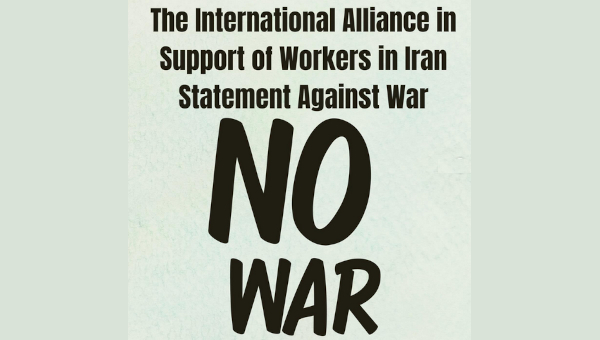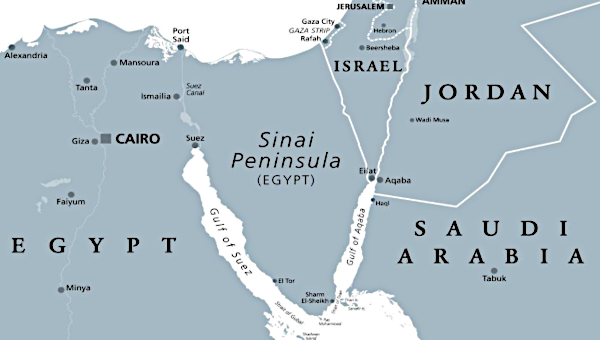Turkish incursion into Northern Iraq: Military Fiasco, Political Debacle
The February incursion of the Turkish army into northern Iraq has ended in a terrible debacle for both U.S. imperialism and Turkey. The two allies are at loggerheads once again, after the thaw in their relations achieved at the White House talks between Bush and Turkish Prime Minister Erdogan on 5 November 2007. The Turkish government and the army are the object of unprecedented criticism by the bourgeois media and also by ordinary people. And, to add insult to injury for the USA, only three days after the withdrawal of Turkish troops from northern Iraq on February 29, a triumphant Mahmoud Ahmedinejad, the President of Iran, was shown on television screens around the world in Baghdad, presumably all smiles for having achieved the feat of being the first Iranian president to visit Iraq under U.S. occupation, 29 years after the Islamic revolution and 20 years of the deadly war between the two countries.
The whole episode of the Turkish incursion was played out as a miserable mismanagement of a crisis situation by the two allies, the U.S. and Turkey. Although the latter had been bombing the PKK (Kurdish Workers’ Party) bases in the north of Iraq since 16 December last year, an incursion into the region of Turkish combat troops on 21 February came as a surprise to the whole world, especially in the midst of winter, given the circumstances of the extremely rugged and mountainous terrain. The operation was greeted with unreserved support by the USA. No lesser a figure than Secretary of State Condoleezza Rice immediately voiced ‘absolute solidarity’ with the Turkish war effort. The U.S. had already extended lavish support to several rounds of Turkish bombing efforts by providing real time intelligence and clearance to enter Iraqi airspace, as well as clear diplomatic approval. But nothing that was said publicly had been as strong as Rice’s words. Yet, only five days later, American support seemed to disappear.
The American Rebuke
Robert Gates, the U.S. Defense Secretary said loud and clear, from India a day before he was to arrive in Turkey, that Turkey should leave northern Iraq as soon as possible. It was a message that he repeated the next day in Ankara on at least four different occasions. Turkish dignitaries (including the military chief of staff) chose to play with fire and declared that the Turkish army would leave only when its job was finished (only to withdraw the next morning at four a.m!). Bush also intevened from Washington, adding his own voice to that of Gates, saying twice, in response to reporters’ questions, that Turkey should leave “as soon as possible.”
It is perhaps too early to totally dissect the dynamics behind this pitiful comedy. The evidence shows that at the beginning the U.S. had supported the wrong operation. Apparently, the permission given to Turkey covered a brief incursion into northern Iraq to inflict some damage on the PKK before the spring, with a few hundred troops or a thousand at most engaged in battle. It turned out that the number of Turkish troops was much higher – ten thousand according to some sources. As the operation unfolded, the most influential Turkish media declared that the objective was Kandil, the mountains where the headquarters of the PKK are located. The Kandil mountains are a good 200 kilometres from the point of entry of Turkish troops into Iraq. All this raised the ire of the Iraqi Kurds (who at the beginning had only made minor noises), and even the central government of Iraq. Not wishing to fall out with these allies, the U.S. then turned around and started chiding Turkey for having misinformed its ally and mentor. This becomes transparent in a brief sentence in Gates’ declaration in Ankara: “The key point” he said, “is transparency, cooperation, and communication.”
Behind this comedy of errors lies, of course, a key contradiction of U.S. policy in Iraq. The U.S. is trying to simultaneously entertain close relations with Turkey, its longtime NATO ally, and its newly-found friends Barzani and Talabani, the Iraqi Kurdish leadership. However, Turkey, having oppressed the Kurds on its own territory for decades, fears any moves towards autonomy or independence for the Kurds in other Middle Eastern countries. So it could not but have chosen to conceal information from Iraq, where the Kurds are part of the power structure, and the USA. This deep-seated contradiction in U.S. Iraq policy had already caused relations between the U.S. and Turkey to chill from 2003 to 2007, aggravated by the fact that Turkish parliament rejected on 1 March of that year a governent motion which practically aimed to make a Northern Front possible during the Iraq war.
The 5 November 2007 meeting at the White House had overcome the rift, with the U.S. clearly giving in to Turkish requests for permission to go after the PKK in Iraqi territory, probably in return for undisclosed commitments on the part of the Turkish government regarding Afghanistan and/or Iraq and/or energy transport routes (read the isolation of Russia). However, the rapprochement between the two countries may turn out to be extremely short-lived. Given the immense humiliation and anger now felt by the population in Turkey, it is impossible for this turn of events not to inflict damage on U.S.-Turkey relations. Both sides of course flatly deny that the Turkish decision to withdraw had anything to do with U.S. pressure. But not a single soul in Turkey is prepared to believe these pious incantations. So damage there must be. Only time will tell whether the geniuses of crisis management on both sides wil be able to contain the damage.
Military Fiasco
The aims of the Turkish military incursion were never stated clearly. This led to exaggerated expectations on the part of Turkish public opinion that the PKK was going to be dealt a serious, if not final, blow. Jingoistic media discourse of the “Objective Kandil” kind further reinforced these unrealistic expectations. This explains the bitter disappointment felt by the Turkish public at large, poisoned as it has been by chauvinistic propaganda toward the Kurds for years now (on the Kurdish question and the rights of Kurds, including self-determination, see Bullet No. 68). It would not be realistic to think that the Turkish army had really set its eyes on dealing the PKK a definitive blow. The top brass, after all, has repeatedly made clear over time that military incursion into Iraq will not finish off the PKK, which by most estimates has a total of around five thousand guerrillas inside Turkey and over the border in Iraq.
Whatever the targets originally set, the Turkish army cannot be said to have achieved any serious military results in this week-long incursion. Official army figures for PKK casualties stands at around 230, while admitted army casualties amount to a mere 27. The PKK, for its part, claims that Turkish casualties rise to 125 and its own loss is only in the tens. No matter where the truth lies regarding this aspect of the matter, the fact that the Turkish military totally failed in achieveing its own targets is clearly proved by the case of the Zab base of the PKK. For days the Turkish army fought a battle with guerrilla forces around this critically important base. It was unable to conquer it and evict the PKK. In the light of this, it sounds surreal for the Turkish general staff to declare in an official statement that the withdrawal decision was taken because the military aims of the operation had been fulfilled.
Why, one is tempted to ask, did the Turkish army battle the guerrilla forces for days in Zab if the taking of that base was not among the aims of the operation? Or conversely, if the taking of the Zab base was so important, why was it that the army suddenly folded and left? The fact that a Turkish helicopter was felled by the guerrillas and many rank officers lost their lives are further evidence of the military fiasco suffered by the Turkish army. It was a fiasco not because the Turkish army was defeated by the PKK, but because there was a stalemate. Given the overwhelming striking power of the Turkish military, second in the Middle East to that of Israel alone, this can only be seen as a failure, and so it will be perceived by the masses in Turkey. The prestige of the Turkish military, an institution much revered and feared, is probably at its lowest ever. This episode bears marked resemblance to the historic defeat suffered by Israel in its attempted invasion of Lebanon in the summer of 2006. (Ironically, Turkey is one of the countries that had sent troops to Lebanon in the wake of that episode to help Israel save face!)
Mounting Political Tensions
Turkey is now entering a very delicate phase. All the contradictions that have marked Turkish social and political life in the recent period are now coming to a head. Alongside the tension deriving from the Kurdish question there is the pressure of the U.S. on Turkey to get involved in its permanent war in the Middle East and Eurasia. The conflict between the two wings of the Turkish bourgeoisie, the pro-Western-secularist and the semi-Islamist, a conflict that had been dormant under the impact of the centrality of the Kurdish question, has again broken out into the open with the initiative of the government to lift the ban on the wearing of the headscarf by university students. And, for the first time in longer than a decade, workers’ struggles seem to be rising, albeit timidly, as a major economic crisis in the world economy appears to be developing and one that will surely hit Turkey as well.
Last year was marked by the serious tension in Turkey due to the prospect of the election of a major leader of the pro-Islamic government party as president, a process interrupted by a military pronunciamiento but finally consummated after the electoral victory of the government party. An explosive year seems promised again for Turkey, next to which the tensions of 2007 will look pale. •





